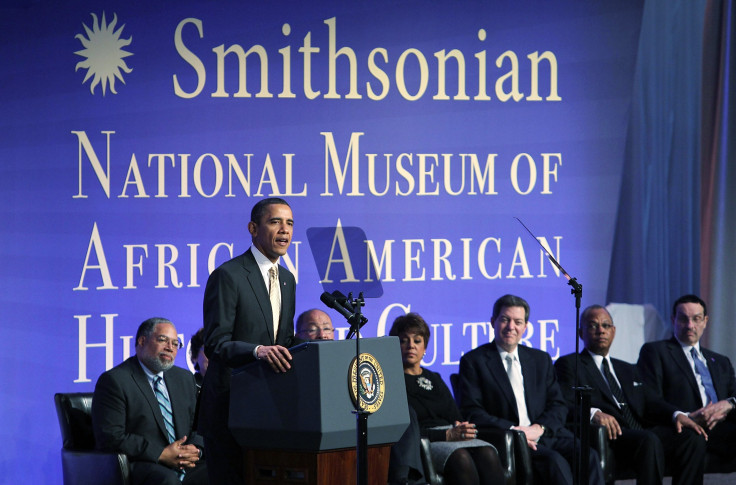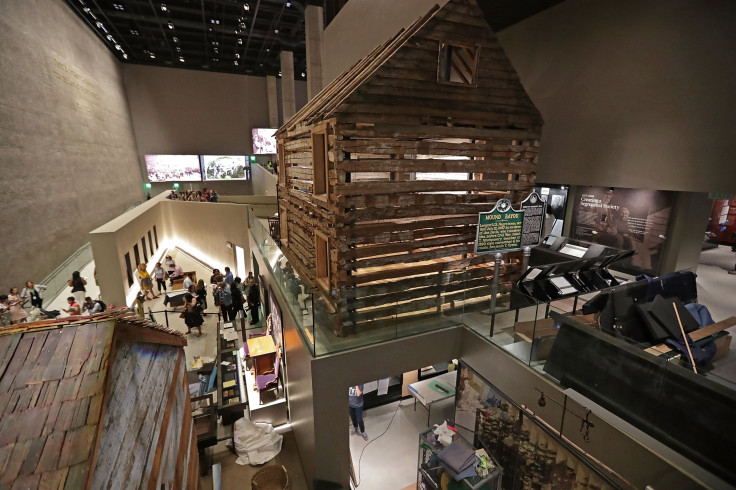How To Get Tickets For The African American Museum: Washington DC History And Culture Museum Sells Advance Passes

The Smithsonian’s National Museum of African American History and Culture in Washington, D.C., began selling advance tickets for visitors to attend in April Wednesday. Since its grand opening in September, the influx of visitors to the groundbreaking structure has stretched the building’s capacity.
The museum plans to roll out advance tickets in increments to accommodate the large crowds. Starting Wednesday, tickets for individual and family visits in April became available through purchase on the official website or by calling. Up to six individual tickets can be purchased at one time. Beginning Feb. 1 at 9 a.m., tickets will become available for May visits.
For those who wish to visit the same day as their purchase, passes can be obtained on the day of a visit starting at 6:30 a.m. A limited number of passes are also available at the museum for walk-up visits starting at 1 p.m. Monday through Friday, though no walk-up tickets are available on the weekends due to the number of visitors.
Group passes can also be purchased on the website for any time from January through December 2017. The museum is open seven days a week, 364 days a year, and will be open on Inauguration Day.
Since the museum opened Sept. 24, 2016, there has been roughly 750,000 visitors. Entry is free, as it is to all Smithsonian museums in Washington, D.C. The museum showcases almost 37,000 artifacts honoring African American history and culture, including items like Emmett Till’s casket.

The museum opened 13 years after George W. Bush signed legislation establishing it while president.
“There were some who said it couldn’t happen, who said ‘you can’t do it,’” Rep. John Lewis, a veteran of the civil rights movement who fought for the museum’s construction in Congress, said at the building’s opening. “This place is more than a building. It is a dream come true.”
© Copyright IBTimes 2024. All rights reserved.





















